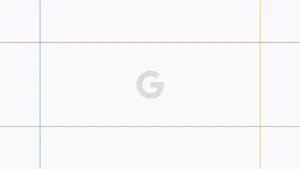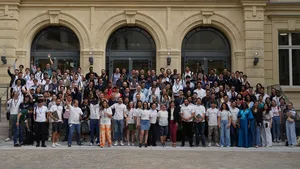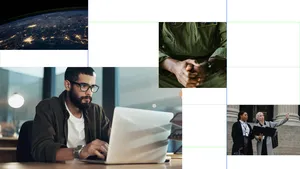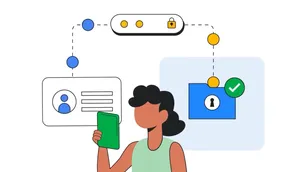New ways we're supporting Ukraine

The Russian invasion of Ukraine and the ongoing war have created a humanitarian disaster, damaged critical infrastructure, and upended energy markets and supply chains. Since the first days of the invasion, our priority has been helping the Ukrainian people, the government, and all those affected by the war. Nearly 10 months later, Ukrainians are still facing deadly attacks and the realities of life in an active war zone — and we remain focused on helping by providing cybersecurity and humanitarian assistance, blocking disinformation, and providing authoritative information to people in the region.
Earlier today, Vice Prime Minister of Ukraine Mykhailo Fedorov stopped by our offices in Washington, D.C. to discuss the challenges his country is facing and ways to extend Google’s help in the months ahead. Here’s an overview of some of the new commitments we’re making today, as well as our continued efforts to support Ukraine:
New support for Ukraine
We’re continuing to provide critical cybersecurity and technical infrastructure support by making a new donation of 50,000 Google Workspace licenses for the Ukrainian government. By providing these licenses and giving a year of free access to our Workspace solutions, including our cloud-first, zero-trust security model, we can help ensure Ukrainian public institutions have the security and protection they need to deal with constant threats to their digital systems.
Through Google.org and our employees, we have now committed $45 million in cash donations. In addition, we have provided $5 million in donated Search advertising and four Google.org Fellowships for humanitarian relief efforts. As part of this commitment, today we’re announcing a $2 million grant and a Google.org Fellowship to the East Europe Foundation which will work with Ukraine's Ministry of Digital Transformation to scale the national "Diia" Digital Education Portal. With Google’s support, Diia hopes to provide 1 million people with personalized training and create 600,000 job placements.

We also remain committed to supporting the Ukrainian startup ecosystem and its vibrant IT and software sector. Today, we have announced the last batch of recipients of the $5 million Google for Startups Ukraine Support Fund. Through this fund, we’re allocating equity-free cash awards to support a total of 58 Ukrainian-founded tech companies. And we’ve been proud to lend our support to economic investment campaigns like Advantage Ukraine.

Tackling disinformation across the region
Ukraine — and the broader Central and Eastern European region — are also facing a disinformation crisis. We’re helping them by monitoring the threat landscape in Eastern Europe and disrupting coordinated influence operations from Russian threat actors. To date, we’ve removed more than 80,000 videos and 9,000 channels on YouTube related to the ongoing war in Ukraine for violating our Community Guidelines and Terms of Service. We’ve also blocked YouTube channels associated with Russian state-funded news channels, globally: more than 750 channels and more than 4 million videos, including channels tied to RT and Sputnik.
We also recognize that misinformation has specific regional dimensions. That’s why we’ve forged partnerships with think tanks and civil society organizations to conduct region-specific research into misinformation and disinformation, rolling out cash grants to support fact-checking networks and nonprofits. This includes a recent $2.5 million Google.org grant to Techsoup Europe to help civil society organizations across Central and Eastern Europe leverage technology to fight disinformation at scale.
Providing cybersecurity assistance
The Ukrainian government is under near-constant digital attack. That’s why shortly after the invasion, we expanded eligibility for Project Shield, our free protection against DDoS attacks, so that Ukrainian government websites and embassies worldwide could stay online and continue to offer their crucial services. Since then, we’ve continued to implement protections for users and track and disrupt cyber threats.
Google’s Threat Analysis Group (TAG) has been tracking threat actors, both before and during the war, and sharing their findings publicly and with law enforcement. TAG’s findings have shown that government-backed actors from Russia, Belarus, China, Iran, and North Korea have been targeting Ukrainian and Eastern European government and defense officials, military organizations, politicians, NGOs, and journalists, while financially motivated bad actors have also used the war as a lure for malicious campaigns.
Mandiant, a part of Google Cloud, is also providing direct assistance to Ukrainian government entities under the Cyber Defense Assistance Collaborative — including compromise assessments, incident response services, shared cyber threat intelligence, and their Ukraine Crisis Resource Center — helping the Ukrainian government detect, mitigate, and defend against cyber attacks.
Surfacing authoritative information
Access to authoritative information is crucial for those on the ground and those seeking to flee danger in the region. In the early days of the invasion, we worked closely with the Ukrainian government to set up a system that sends rapid air raid alerts to Android mobile phones in at-risk areas, and to feature information on Search and Maps about shelter, humanitarian services, and aid points. Globally, we’ve surfaced features on Search to provide quick access to authoritative information, including highlighting news coverage from trusted sources and other helpful context about the war. And on YouTube, we’ve surfaced videos from authoritative sources in search results and recommendations. The breaking news and top news shelves on YouTube’s homepage have received more than 100 million views in Ukraine.

Preserving Ukraine’s cultural heritage
Recently, we also announced “Ukraine is Here,” a new collection on Google Arts & Culture that allows anyone to explore Ukraine’s culture and traditions. Launched in collaboration with the Ministry of Culture and Information Policy of Ukraine and 10 other partners, this project allows people around the world to explore Ukraine’s rich cultural heritage.

Looking ahead
In May, we were honored to receive the first ever “Peace Prize” award introduced by President Zelenskyy for our work to support the people of Ukraine. Since then, the war has taken on new dimensions, and we remain steadfast in our commitment to being worthy of that award. We join the international community in expressing our sincere hope for a return to a peaceful and sovereign Ukraine — and will continue to look for new ways to help those whose lives have been so deeply and tragically affected.








